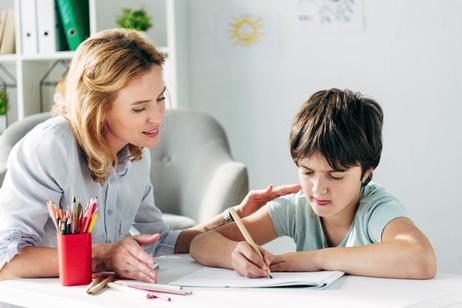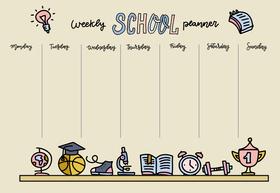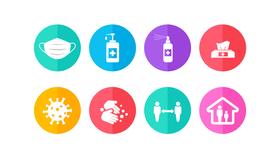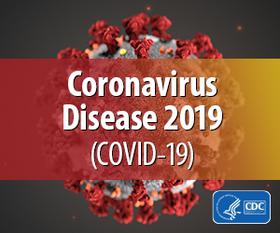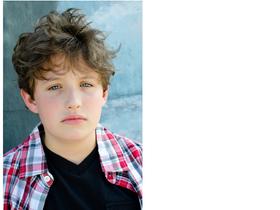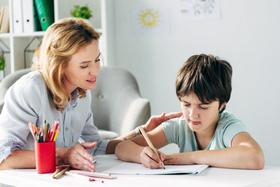At the first sign that their child has a learning difference, many parents panic and withdraw into a state of denial. That may help you. But it will not help your child. Your child's teachers know what to look for. As a rule, the signs of a child with learning issues are pretty obvious. While teachers may not know how to treat the disorder professionally, they have the training to alert parents and the school administration when they suspect your child has a learning issue.
In this TEDx Talk, Dean Bragonier discusses the true gifts of a dyslexic mind.
Before we dig deeper into the subject of learning differences, here's a definition of the term:
Learning differences, or learning disabilities, affect a person's ability to learn and process information. The signs of learning differences can vary depending on the specific type of disability, but some common symptoms include:
Difficulty with reading, writing, and spelling: People with learning differences may struggle with decoding words, recognizing everyday words, understanding sentence structure, and spelling correctly.
Problems with math: People with learning differences may struggle with basic math concepts such as addition, subtraction, multiplication, and division, and they may also have difficulty with more advanced concepts such as geometry and algebra.
Poor memory: People with learning differences may have difficulty remembering information, especially regarding rote memorization of facts or details.
Difficulty with organization and time management: People with learning differences may struggle with organizing their thoughts, planning and prioritizing tasks, and managing their time effectively.
Trouble with following directions: People with learning differences may have difficulty following verbal or written instructions, especially if they are complex or involve multiple steps.
Problems with social skills: Some people with learning differences may have difficulty with social skills, such as interpreting nonverbal cues, maintaining eye contact, and initiating or sustaining conversations.
It's important to note that these signs alone do not necessarily mean someone has a learning difference. A formal evaluation by a qualified professional is needed to diagnose a learning difference. People with learning differences can overcome these challenges and achieve their goals with proper support.
Finding the proper support for your child with learning differences is critical. Public schools develop a personalized learning program called an IEP to provide as much support as possible. On the other hand, private schools offer support ranging from specialist teachers to entire institutions staffed with experienced specialists capable of handling most learning differences.
The key to success is individual attention. I saw this first-hand when we adopted our oldest son while we were stationed in The Bahamas. He was 12 years old when he came to us and read at a 2nd-grade level. Friends referred us to Gail Wisdom, founder of Academia. It's essential to understand how teachers who know how to remediate learning differences approach their work.
Here's Mrs. Wisdom's philosophy.
Gail Wisdom, a veteran educator who rose to become principal in the Catholic education system, founded Academia. Over many decades she has helped scores of students with learning difficulties to overcome their challenges, which, though unique to them, are commonplace.
Mrs. Wisdom, a fierce advocate of basic literacy, has repeatedly noted that, barring a severe mental handicap, she can teach just about any child to read, write, and communicate orally. She has the track record to prove her ideal that no Bahamian child should be left behind in terms of proficiency in English. Source: Bahamas Local
Mrs. Wisdom improved our son's reading so he reached his grade level over 18 months. The difference it made to his self-confidence was remarkable.
However, this progress required one-on-one sessions. Most of the time, that kind of individual attention is not always possible in a public school setting. That's why I recommend you provide the appropriate level of support to remediate your child's learning differences.
This video from the National Center for Learning Disabilities looks at the strengths of children with learning disabilities and other disorders.
Diagnose the learning difference.
How does a qualified professional diagnose a learning difference?
A qualified professional, such as a psychologist or educational specialist, can diagnose a learning difference through a comprehensive evaluation. The evaluation typically includes the following steps:
Referral and intake: The process begins with a referral from a parent, teacher, or healthcare provider, followed by an intake interview to gather information about the individual's medical, educational, and developmental history.
Testing: The evaluator administers tests to assess the individual's cognitive abilities, academic skills, and social-emotional functioning. The tests may include standardized assessments, observations, and interviews with the individual and their family or teachers.
Analysis and interpretation of results: The evaluator analyzes the results of the tests to identify patterns of strengths and weaknesses in the individual's learning profile. They compare the individual's performance to their peers and determine whether a significant discrepancy exists between their ability and achievement.
Diagnosis and recommendations: Based on the evaluation results, the evaluator diagnoses a learning difference, such as dyslexia, dyscalculia, or ADHD. They provide recommendations for appropriate interventions, accommodations, and educational supports to help individuals overcome their learning challenges and achieve their full potential.
It's important to note that diagnosing a learning difference can take time and involves multiple steps. Working with a qualified professional with experience assessing and diagnosing learning differences is also essential. A proper diagnosis can lead to effective interventions and supports that can improve the individual's academic and social-emotional outcomes.
When Should You Consider A Special Needs School? Offers more details about finding the right school for your child. But, before you look at schools, listen to the professionals. Family and friends will offer advice, much of it well-intentioned but could be better informed. Your child's current teachers and school can refer you to a qualified professional who can give you a roadmap for your child's education. That will take time. It will be expensive. But your child's well-being deserves that investment of your time and money.
Questions? Contact us on Facebook. @privateschoolreview

